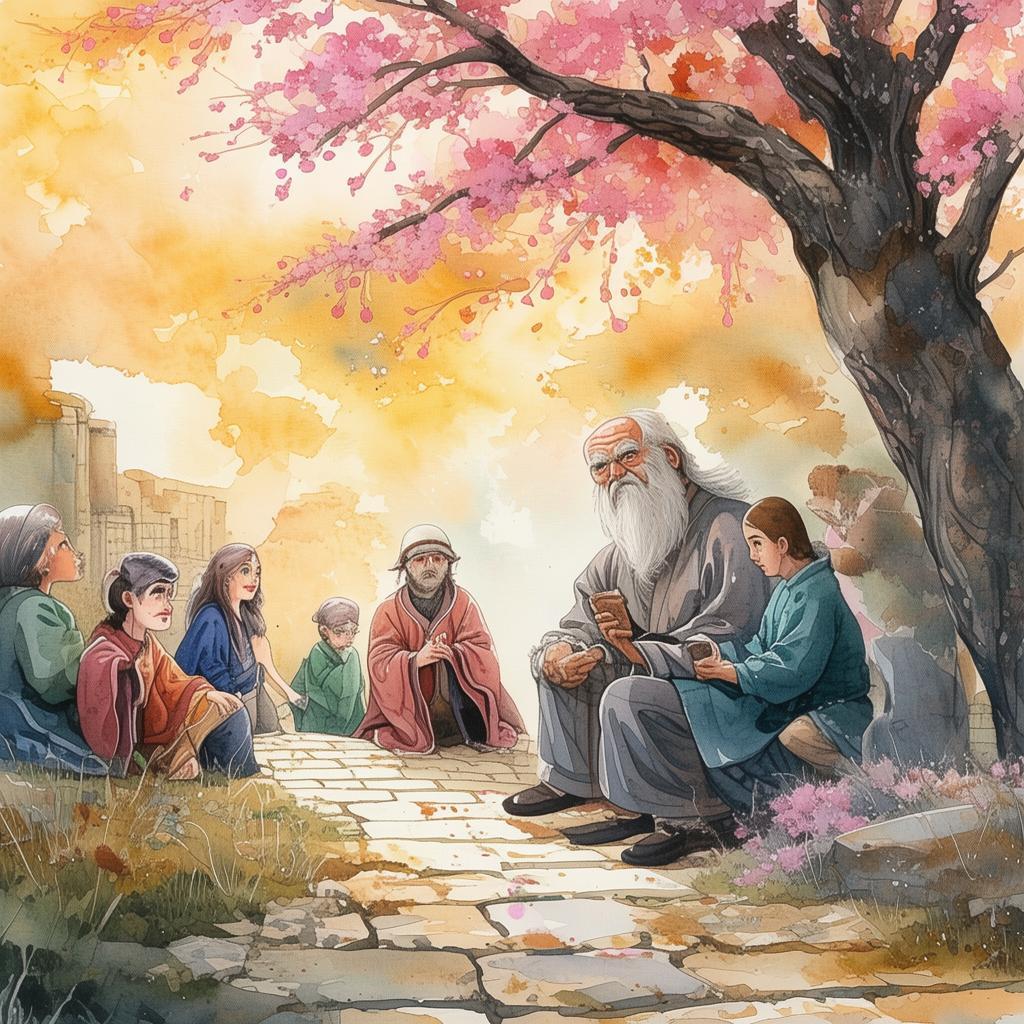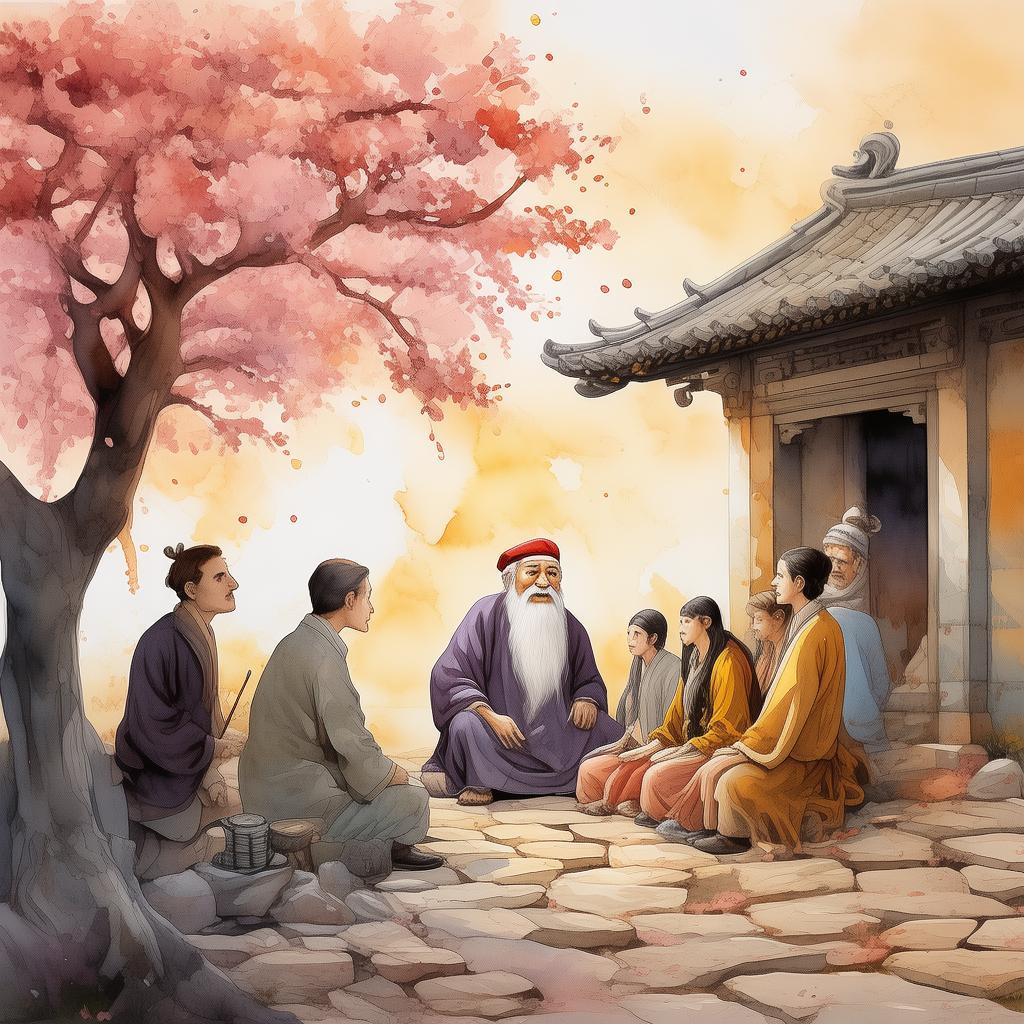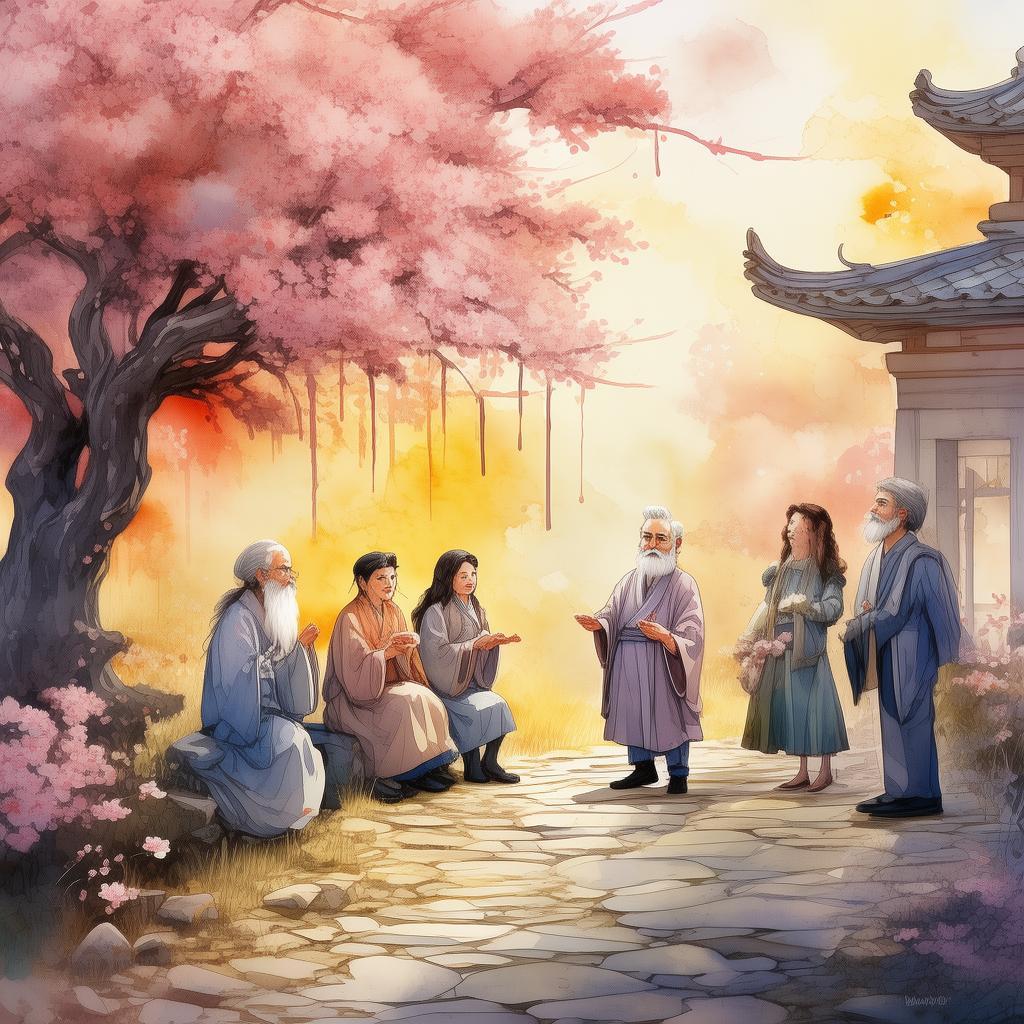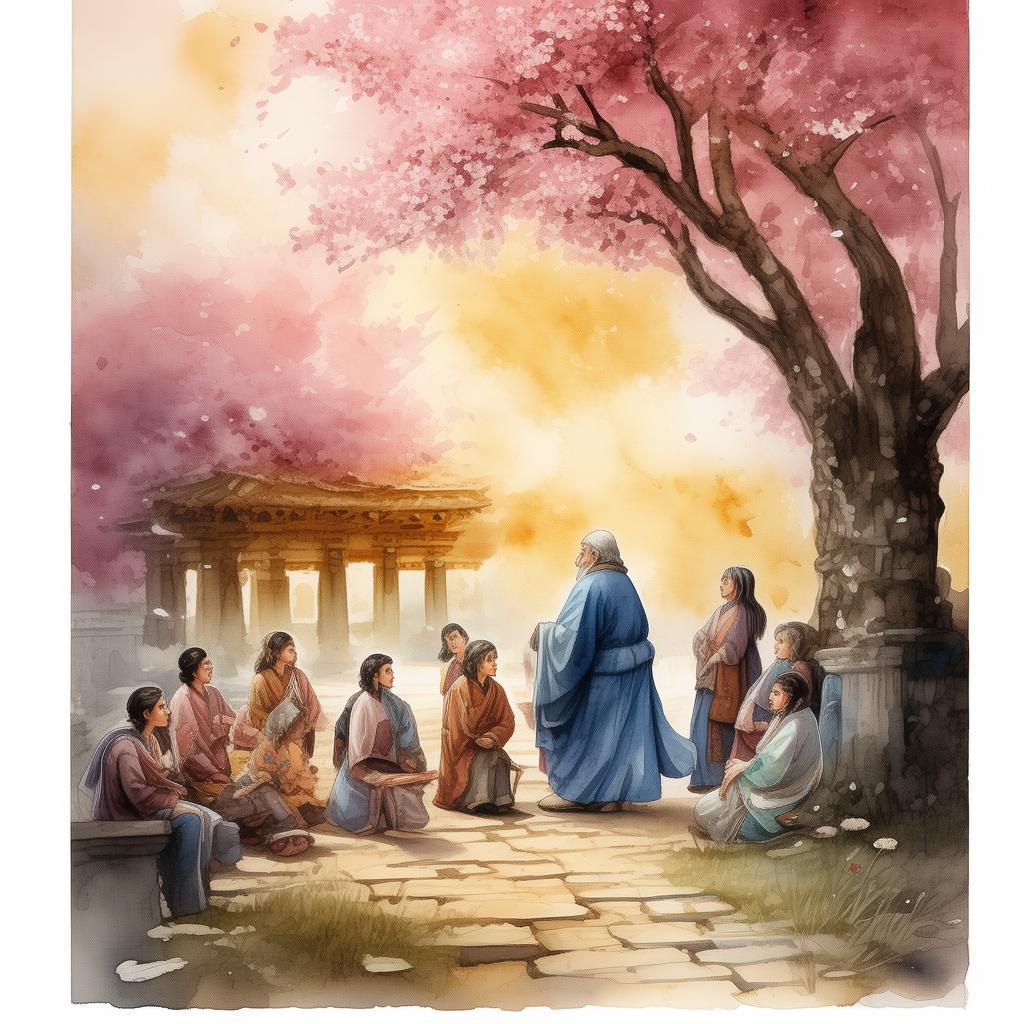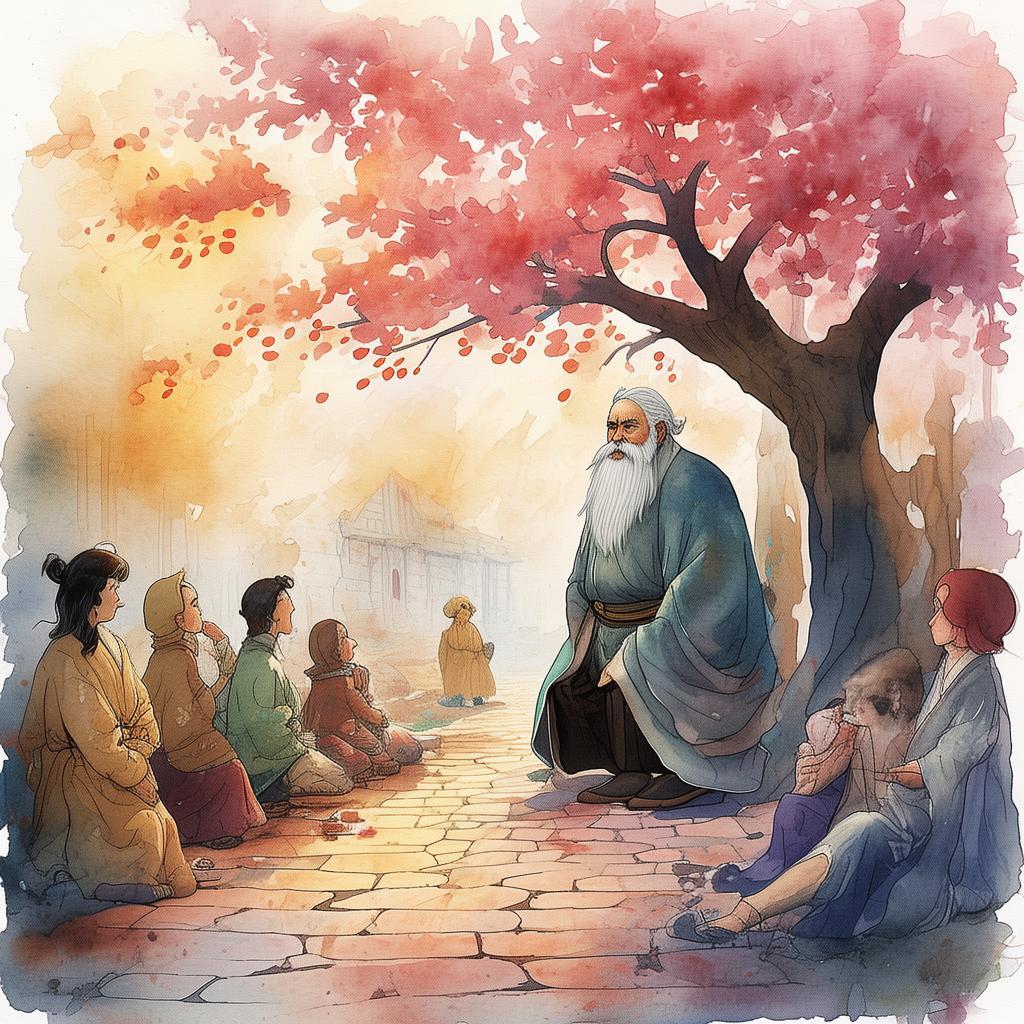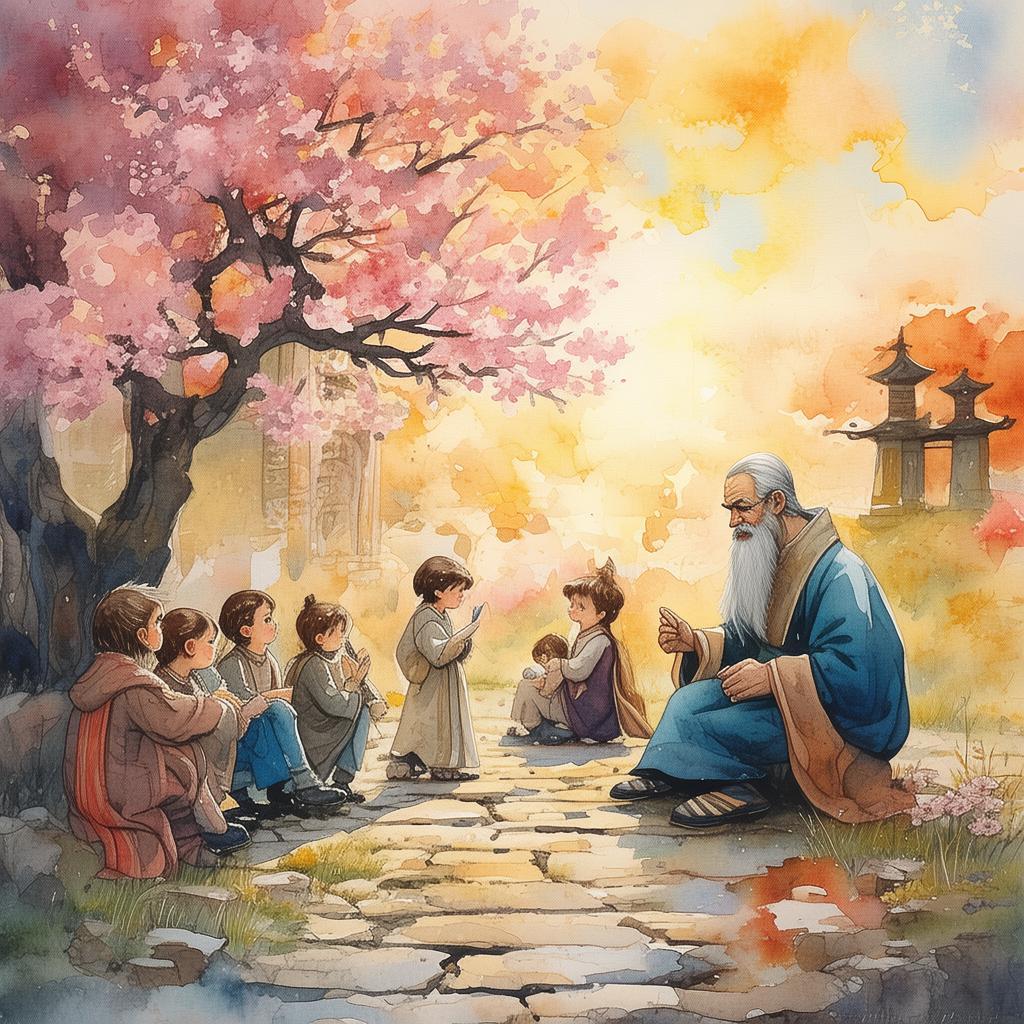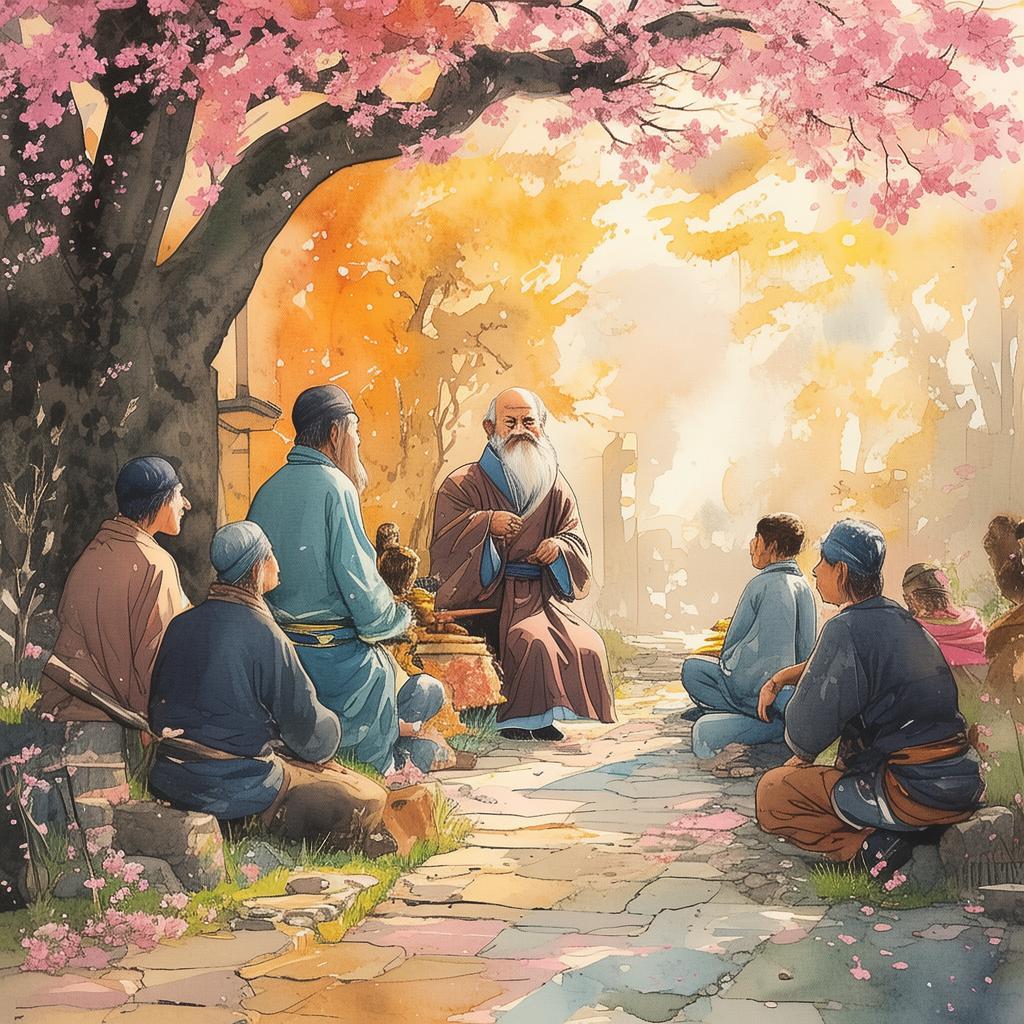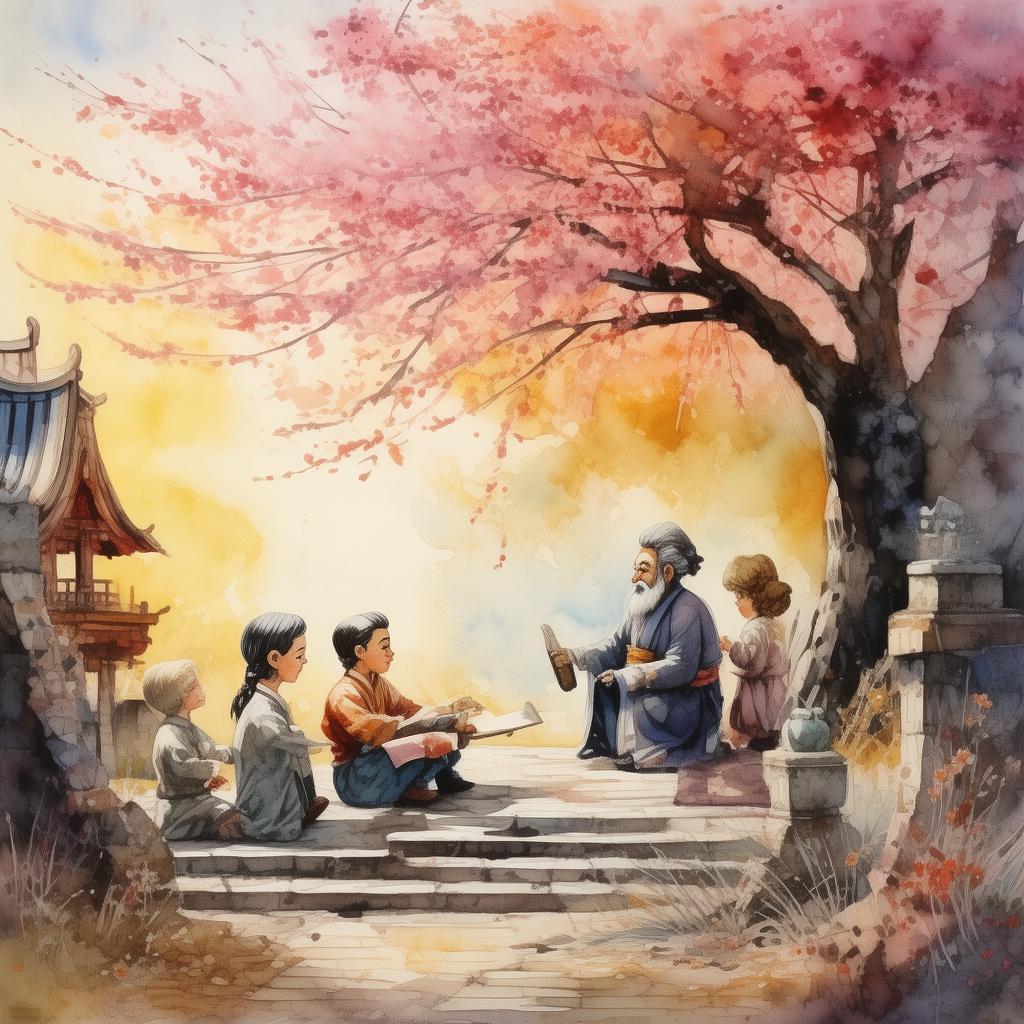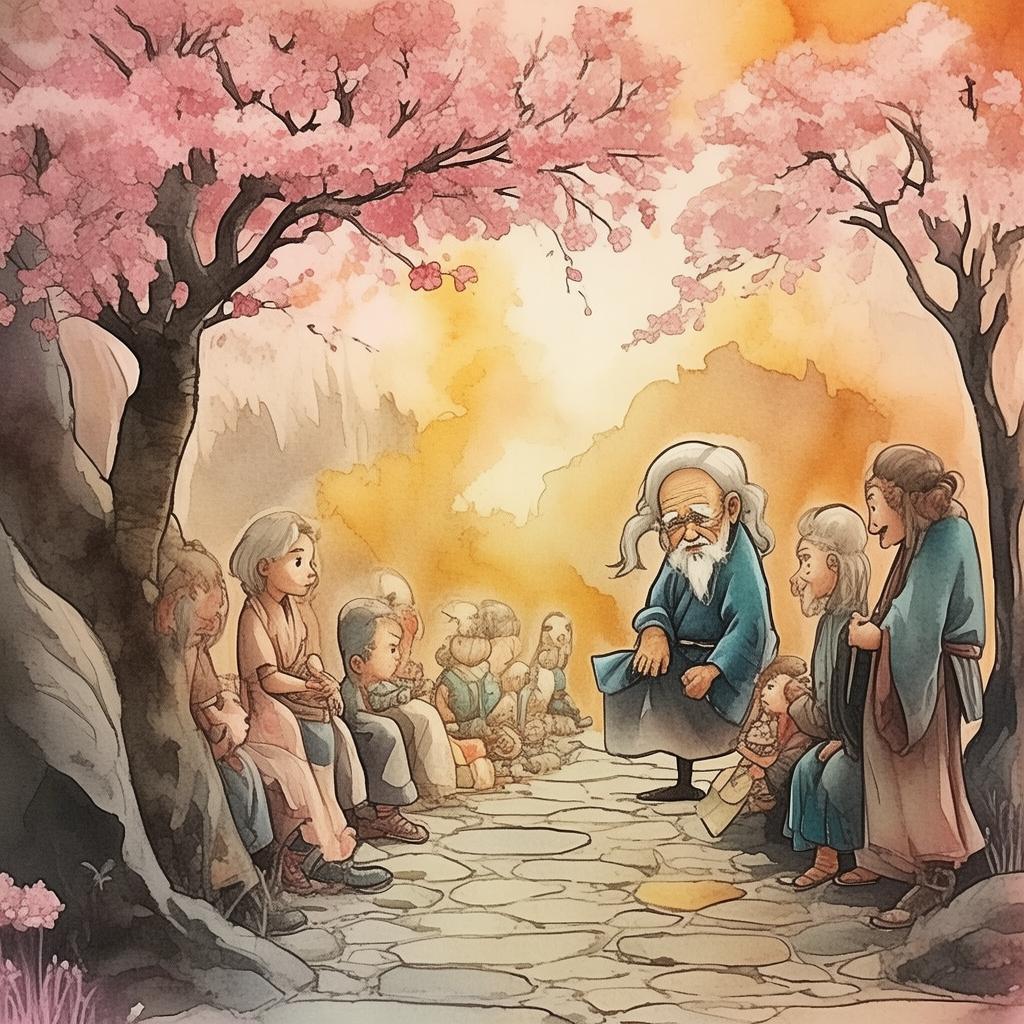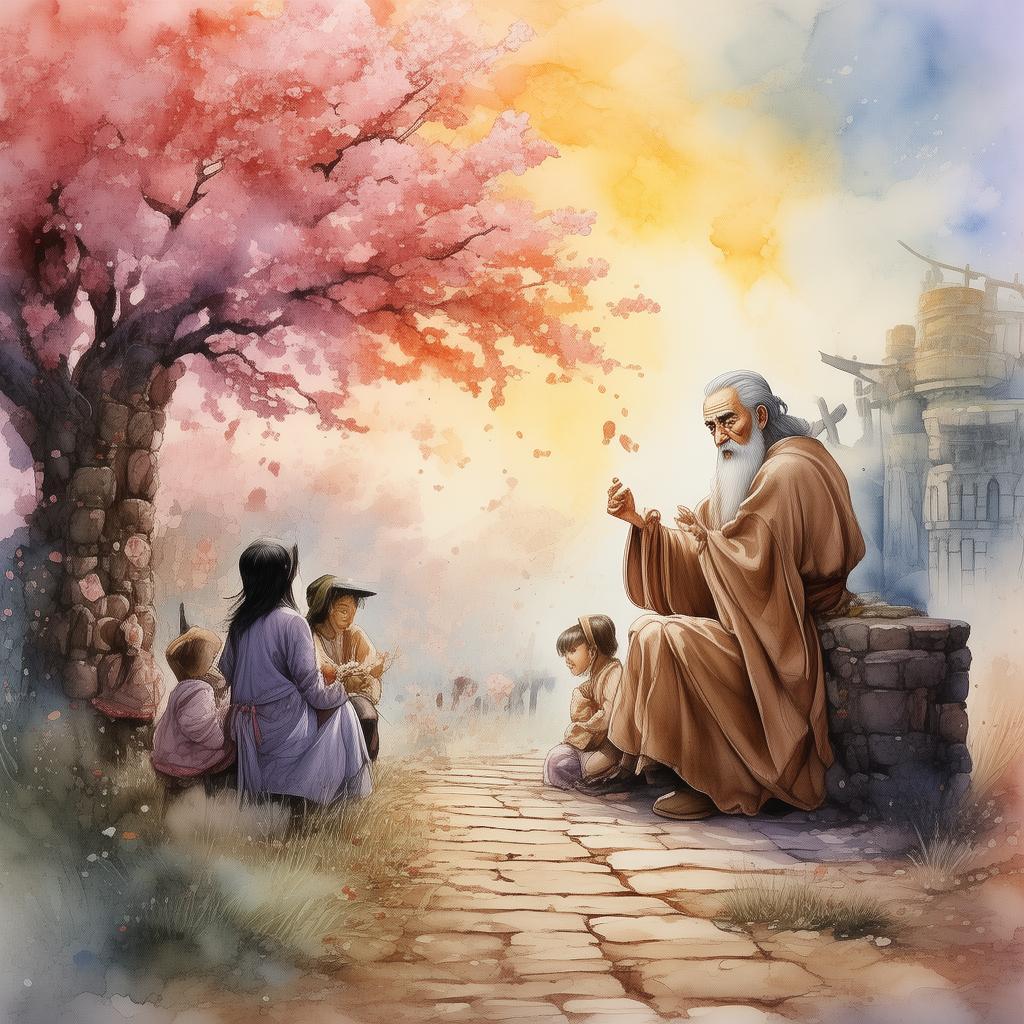One Step Forward, Two Steps Back: The Tale of Cao Cao's Fateful Decision
In the tumultuous era of the Three Kingdoms, the land of China was torn asunder by war and political intrigue. Among the many warring states, the Wei, Shu, and Wu rose to prominence. Each vied for power, and the balance of strength was ever-shifting. In the midst of this chaos stood Cao Cao, a man of immense talent and ambition. His strategic prowess was unmatched, and he had already consolidated much of the central plains under his rule.
One day, as Cao Cao sat in his grand hall, a message was brought to him. It was from his trusted advisor, Zhuge Liang, who was then serving under Liu Bei, the ruler of the Shu state. The message was cryptic, filled with riddles and enigmatic statements. It spoke of a vision Zhuge Liang had, a vision that foretold the rise and fall of Cao Cao's empire.
The message read, "One step forward, two steps back. A decision that will shape your destiny."
Confused and intrigued, Cao Cao sought the counsel of his closest advisors. Each offered their own interpretation, but none could provide a clear answer. The situation was dire, and Cao Cao knew that he had to act swiftly. He decided to consult the ancient texts of strategy, hoping to find guidance within the wisdom of the past.
As he delved into the ancient scrolls, Cao Cao found a passage that resonated with him. It spoke of a time when a great leader had to make a fateful decision that would determine the fate of his kingdom. The leader, like Cao Cao, had been faced with a choice that seemed simple on the surface but held profound implications.
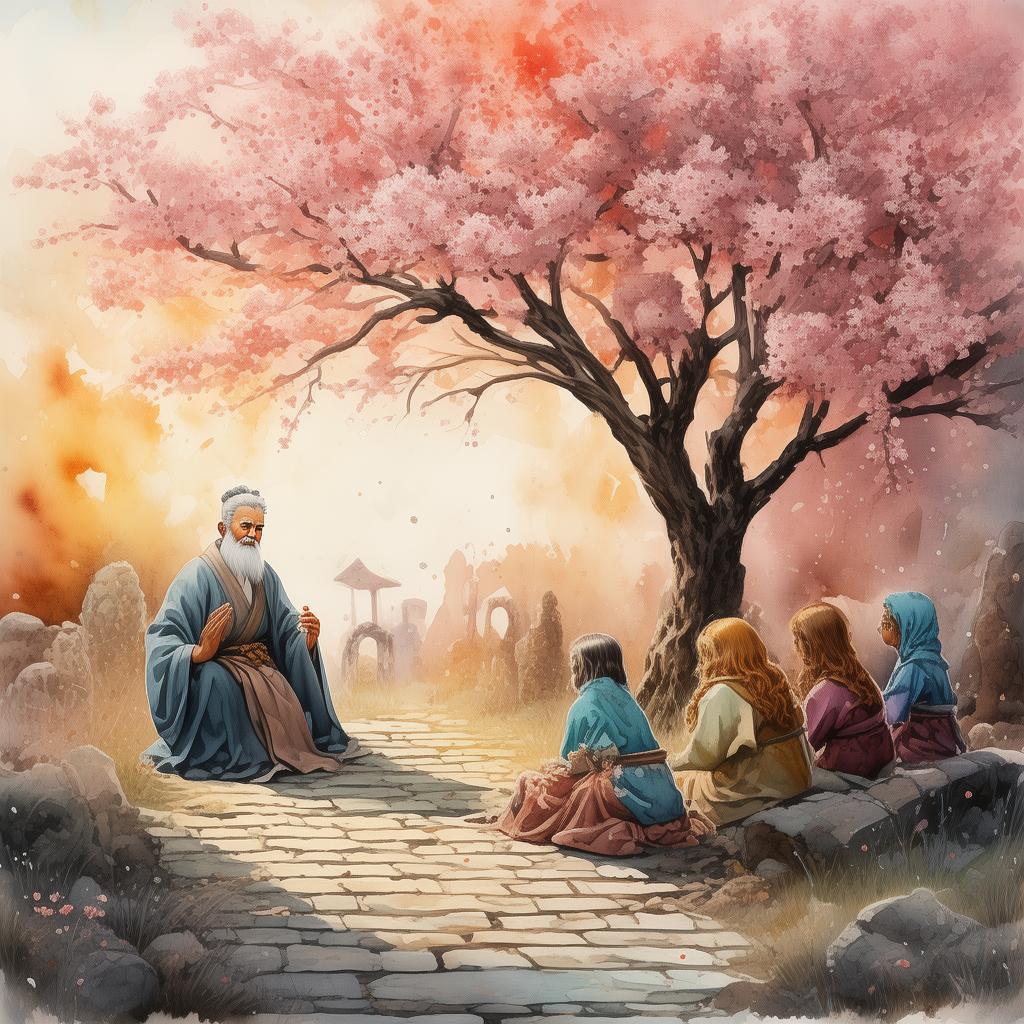
The passage read, "In the land of chaos, the wise leader must choose between the path of least resistance and the path of greatest risk. The former may bring immediate success, but the latter may lead to eternal glory."
Cao Cao realized that the message from Zhuge Liang was a test of his own wisdom and courage. He knew that he had to make a decision that would not only secure his position but also ensure the long-term stability of his empire.
The following day, Cao Cao summoned his commanders and strategists to a grand assembly. He announced his decision to launch a massive campaign against the Shu state, despite the risks involved. The advisors were aghast; they knew that the Shu state was well-prepared and that a direct confrontation could lead to disaster.
Cao Cao, however, was resolute. "We must strike while the iron is hot," he declared. "The time for caution is past. We must take the bold step forward, even if it means taking two steps back."
The campaign was a success, and Cao Cao's forces routed the Shu army. However, the victory came at a great cost. Many of his best soldiers had fallen, and his resources were depleted. As he looked out over the conquered land, Cao Cao realized that he had taken the bold step forward, but it had indeed led to two steps back.
Disheartened by the outcome, Cao Cao sought counsel once more. This time, he turned to the ancient texts, hoping to find solace in the wisdom of the past. He found a passage that spoke of the nature of leadership and the importance of perseverance.
The passage read, "A wise leader does not fear taking risks, for in the long run, the greatest risks often lead to the greatest rewards."
Cao Cao's spirits were renewed. He realized that his decision had not been a failure but rather a necessary step in his journey to greatness. He understood that the path to success was often fraught with setbacks and challenges.
As the years passed, Cao Cao's empire grew stronger, and he became one of the most powerful leaders in Chinese history. His decision to take the bold step forward, despite the risks, had ultimately led to his rise to power.
The tale of Cao Cao's fateful decision serves as a timeless lesson on the nature of leadership and the importance of courage and perseverance. It reminds us that sometimes, in order to achieve greatness, we must be willing to take risks and face the consequences, even if it means taking two steps back for every step forward.
In the end, Cao Cao's legacy was one of strategic brilliance and unwavering determination. His story continues to inspire leaders and common folk alike, reminding us that the road to success is often paved with challenges and that true wisdom lies in the ability to navigate these obstacles with courage and foresight.
✨ Original Statement ✨
All articles published on this website (including but not limited to text, images, videos, and other content) are original or authorized for reposting and are protected by relevant laws. Without the explicit written permission of this website, no individual or organization may copy, modify, repost, or use the content for commercial purposes.
If you need to quote or cooperate, please contact this site for authorization. We reserve the right to pursue legal responsibility for any unauthorized use.
Hereby declared.
